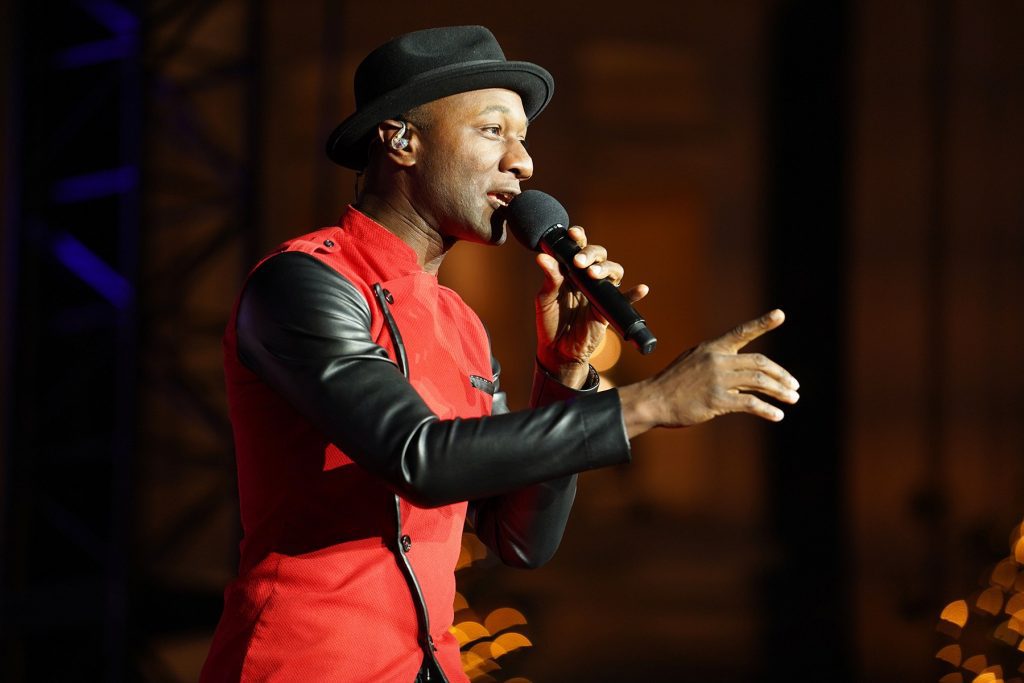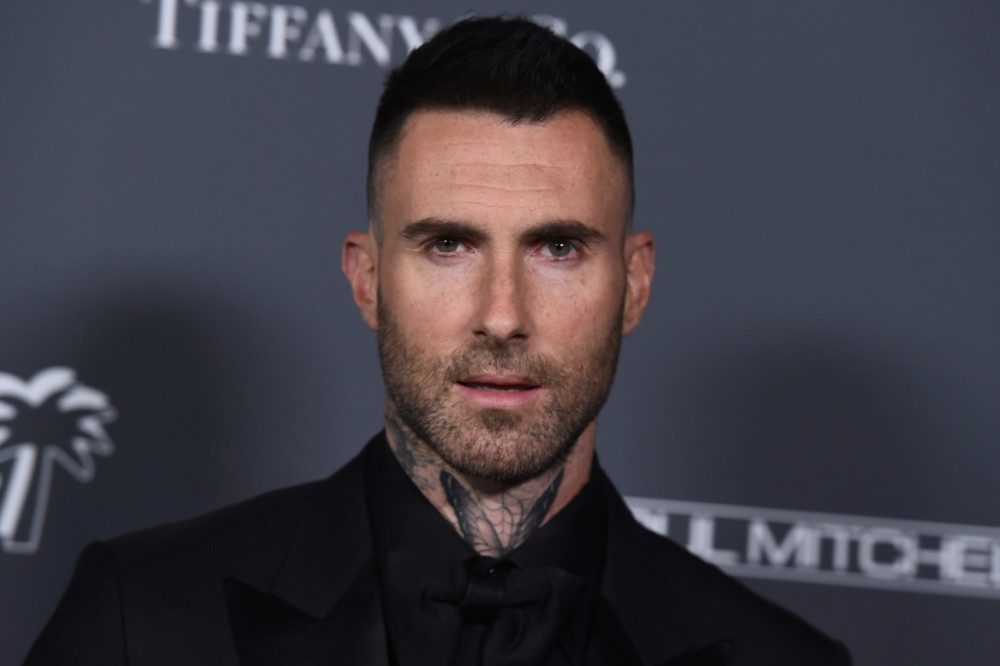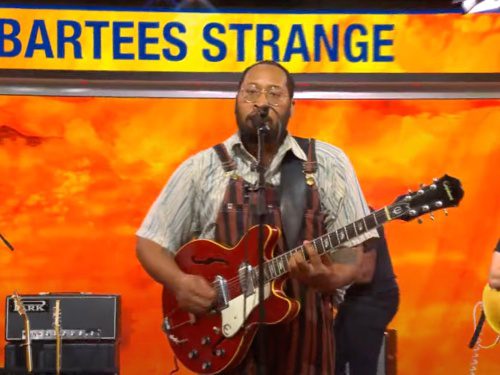
Aloe Blacc: The Police Have Hid Behind ‘Qualified Immunity’ for Too Long
Last month, Aloe Blacc joined a coalition of artists, managers and lawyers looking to push for meaningful change and reform as protests against police brutality and racial injustice swelled across the country in response to the killings of George Floyd, Breonna Taylor, Ahmaud Arbery and others. That coalition produced an open letter to Congress, signed by over 450 artists and actors — including Ariana Grande, Billie Eilish and Rihanna — that called on the House of Representatives to pass the Justice in Policing Act of 2020. The bill included reforms like a nationwide ban on chokeholds and no-knock warrants, the establishment of a registry to collect data and improve investigations into police misconduct and an end to “qualified immunity” practices in police departments. And while it easily passed the House, the Justice in Policing Act has unsurprisingly stalled in the Senate.
A major reason for that roadblock is qualified immunity, a judicial doctrine that shields police and other government officials from civil suits unless they violate “clearly established” federal law. Many believe ending qualified immunity — which only the federal government or Supreme Court can do — is key to improving police accountability. But most Senate Republicans and the Trump White House have called ending it a non-starter.
“I’ve heard that ‘non-starter’ talk before,” Blacc tells IndieLand. “I learned it in history class. I learned it with regard to the Civil War — ending slavery is a nonstarter. I heard it with Jim Crow laws — that’s a nonstarter. I heard it with the Civil Rights movement — it’s a nonstarter. About affirmative action — a nonstarter. I think those days are over. I think we’re going to have to have these transformations now.”
Blacc says that out of the coalition that produced the open letter, he and a smaller cohort have branched off and turned their attention on the fight to end qualified immunity. While he’s no stranger to political action — from tackling the school-to-prison pipeline in his “Love Is the Answer” video to his work in trying to eliminate food deserts — Blacc says his advocacy has never reached the level that it has lately, where he’s speaking with senators’ offices twice a week.
Even though the future of the Justice in Policing Act is in limbo, Blacc spoke with IndieLand about the imperative of ending qualified immunity and how there’s still so much work that can be done, even while Congress is doing none.
**
If we look at all of the protests that are happening across the world, it ultimately comes down to accountability. Will you hold the police responsible for a murder, or will you not? And if the district attorney is not doing it, then there has to be some other remedy for the family of a victim, and the people who feel victimized. And qualified immunity, unfortunately, strips any remedy from victims’ families. And not only just people who are killed by police, but people who are brutalized by police or robbed by police.
It’s the one thing that the federal government or Supreme Court can do. But the Supreme Court decided that they wouldn’t even touch it. The White House said it’s a nonstarter. Republican Senate said we’re not going to address it. And I think all of that rhetoric has to change.
“Ending qualified immunity is the one change that [Congress] can make that will have lasting impact”
We wrote [the letter] and presented it to, and in support of, the House, and also as a symbolic message to the Senate — to say this is where we stand in the artist community, in music, and where we’re gonna dig our heels in and fight.
It’s clear that the Senate was already drafting a bill for justice reform and that was largely symbolic as well. The federal government doesn’t have very much jurisdiction over state and local municipalities, but the one thing that they can do is qualified immunity. That’s why it’s important that it was in the House bill, although it was limited and hyper-focused on policing, which is obviously what the protests are about. The Presley/Amash bill speaks specifically to ending qualified immunity in total, but that was considered to be too progressive and it didn’t get the support of the entire House. But what Senator Tim Scott proposed from the Senate Republican side did not go far enough; did not address the one thing that the federal government can address and have an impact on.
We’ve had conversations with Senator Tim Scott’s office. We have heard their position and how they are ignited by this moment to affect some change. We really encourage them to recognize that the change that the lawmakers can make is to end qualified immunity. That is the one change that they can make that will have lasting impact. We were able to put together a list of empirical data to illustrate what is wrong with qualified immunity, and why only two out of 30 cases that have gone to the higher levels of courts have ever resulted in any remedy for victims. That’s a very, very poor batting average. You’d hope it was at least 50 percent.
“[We’ll] get enough awareness around the issue that [qualified immunity] becomes a debate topic for November”
With this information, we hope it will help give them the tools that they need to make a decision to end qualified immunity in their next draft of their bill. And we are offering the same information to Senators Cory Booker (D-NJ) and Kamala Harris (D-CA) and Senator Michael Braun (R-IN) as well. And I know Senator Braun, a Republican senator, is very focused on ending qualified immunity. So I’m hoping that with his voice, along with Senator Harris and Senator Booker and others, we’ll be able to influence the rest of the Senate to make a decision that will truly have a lasting impact in creating accountability, which creates a deterrent against abusive misconduct.
And at the same time, the movement for black lives can continue with the local actions around changing policing systems. Removing the funding that goes to militarization and putting that into social services that will ultimately result in cultural shifts that make it such that the police are not necessary. And the argument that they’re even necessary right now is very strong. We hope the call to defund will be met with refunding of the people, with the money going to more education, jobs, health care and services for mentally unstable people.
The issue with politics as usual is that because we’ve been habituated to what politicians do on the Hill, we think, “OK, this is the pattern, OK, I’m going to fall into that pattern.” And I think this is a watershed moment where we don’t have to fall into that pattern. We can say very forcefully that our voices are loud and we’re being heard: This is what we want and we want it right now.
My goal is to not just sit in a holding pattern. I know that the Senate is going on a recess and that these kinds of issues may not get picked up right away, in the normal process. My goal is that we’re going to block the normal process. We’re going to get enough awareness around the issue that [qualified immunity] becomes a debate topic for November, along with health care, abortion and the economy.
It’s important that the protests continue. Having people voice their First Amendment rights in the streets is the way to speak truth to power. And there are obviously many strategies, but we need as many people who are out holding picket signs to be sure to register and vote. Ending qualified immunity is the federal measure of accountability for policing the United States. Senators and representatives all rely on votes from their constituents and the police unions are sort of an insurance of a huge amount of votes. They’ll do whatever they can to appease the police unions, because they fear their re-election is threatened if they go against the police by ending qualified immunity. We have to let them know: you should be more afraid of other voters. You should be afraid of all of those tens of thousands of people in the streets, because they’re the ones that are coming to vote you out if you’re not exacting the will of the people.




